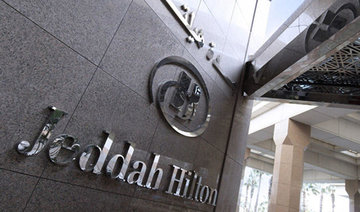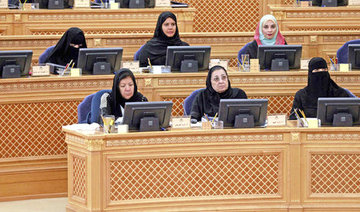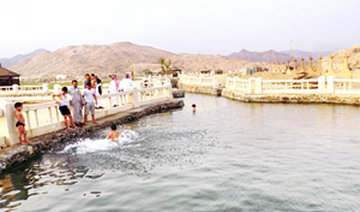RIYADH: Saudi women are making their mark in the hospitality world with friendly smiles and welcoming phrases. Some of them have reached beyond that and are now leading the industry and running high-end properties.
Sarah Qassim is the managing director at Jabal Omar, which is initiating a mega-project around the Makkah’s holy mosque, consisting of 40 towers.
When asked about her experience in the industry, Omar said: “When I first started in 2007 at the InterContinental Hotel in Jeddah, I was one of the first Saudi women who entered this industry; there were foreigners but not a Saudi. It was difficult. I doubted myself; people looked down on me in the beginning. Society couldn’t understand why I chose to work in the hospitality industry. They didn’t understand that it is my passion. Nowadays its completely different. After the King Abdullah Scholarship program, I believe it had a huge impact on women, definitely leading and taking bigger roles.”
Sarah is also an author. “In the hotel lobby” is the title of her published book, which she classifies as an “educational novel.” Most of the story takes place in the lobby; the idea of the novel is based on her experiences in the hotel’s lobby, which spans over 10 years.
Also, a lecturer on hospitality, she gives workshops for the Saudi Commission for Tourism and Natural Heritage, and around 30 females, attend.
Sarah emphasizes: “Saudis are known for their generosity; when you go abroad, they recite poems about our hospitality, culture and beliefs. We are now trying to integrate it with international standards.”
Maram Gogandi, also a leading Saudi female in the hotel industry, was appointed general manager for Park Inn Hotel in Jeddah in 2017, with 12 years of experience in the hospitality industry.
Gogandi has worked all over the world and accumulated many awards, one being an international one — The Company Hospitality Award — which she received in 2017 in Paris. She says that many were pleasantly surprised: “I was the first Arab to win it. It is an international award.”
The high position she holds now didn’t come easy, but after many years of hardships and hard work. Gogandi explains: “I was the first Saudi woman to work in sales for the government and VIP sector. It was difficult then, but now it’s a different story. Now I’m being applauded. Rezidor’s leadership, program supported me and looked into promoting a qualified Saudi female.”
She adds: “Rezidor’s leadership program now has 102 ladies, 21 of whom are in executive positions.”
“My plan is to meet with other hotels and companies, and help train Saudis of both genders. I am now making a requirements program for all Saudis. It will be systemized with specific requirements, in a specific process, in which we can define their skills and put them in the correct position in which they will be able to give more. Even training companies will benefit; we want to make a generation of leaders.”
These leading ladies spoke on their experiences during their long years in the industry. What was noted was that in the span of 10 years many things have changed. What was once considered taboo, and ladies working in this field were looked down upon, is now considered normal and even applauded. They give credit to the King Abdullah Scholarship Program which helped normalize their presence in this field and made it acceptable.
Veteran Saudi females in the hospitality industry are working hard and smart to elevate the status of Saudi women one step at a time.





























